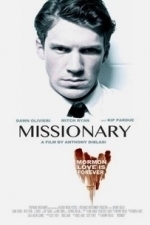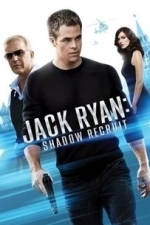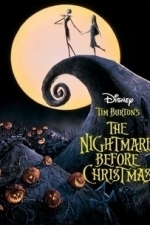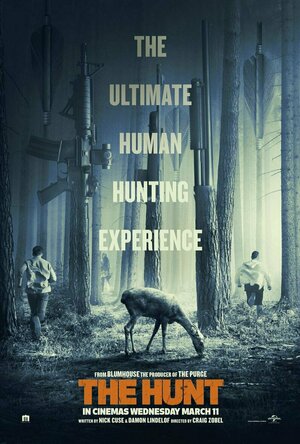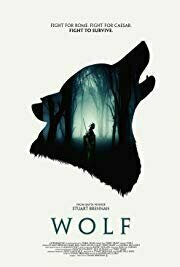Search
Search results
Lyndsey Gollogly (2893 KP) rated Defiance (Rise of the Iliri #3) in Books
Mar 3, 2020
Contains spoilers, click to show
HER ONLY CHOICE IS TO CHANGE HER WORLD…
Salryc Luxx has come a long way in just four years, from slave to conscript, to elite Black Blade assassin, rising rapidly as her extraordinary abilities are revealed. Promoted to lieutenant after capturing a valuable shipment of metals and laying waste to the invading force, she and Cyno, her partner (in war and love), have been entrusted with a dangerous mission: to assassinate the King of Anglia and the five nobles in line for the throne, leaving the path to ascension clear for their own leader.
That’s one side of the story. The other is that she and Cyno have been assigned this suicide mission as Parliament’s first pass at removing the iliri taint from the military. Either way, without the strength of allies, the Conglomerate of Free Citizens cannot turn back the invaders, whose goal is to wipe out the whole iliri species, so Sal and Cyno are the only hope of ending the continental war devastating their species. Traveling for months, they are so far away from their home base that they’re beyond the mental link that connects the pack. They remain committed to their mission—and to each other, but… unhappily disturbed. They can only hope their separation from the pack bring them closer together. But the danger is, in the absence of the pack, their bond will wither.
A kind deed, helping what they take to be a wounded animal, leads to the discovery of their true nature, to strengthening and re-energizing their pack, and to a surprising alliance that offers hope for the future. The wounded animal, they learn, is a graour wolf, a species of ferocious warriors with language and traits nearly identical to iliri. When two of them ask to join her pack, Sal recruits them as Black Blades and the iliri are no longer the only dog in the fight for iliri freedom.
But Anglia is nothing like the Conglomerate of Free Citizens. Anglians discriminate based on gender, not species. Iliri are thought to be just a myth--until Sal shows her face. To convince the king and his council that yes, a woman really can be a soldier, she's going to have to make her own rules. The enemy is moving. She doesn't have time to deal with outdated court manners.
As the defiance of an entire species rises up in her, she really has no choice—she’ll just have to change the world.
Women readers will thrill to the reverse harem idea that pushes the boundaries of epic fantasy in this second world series that may remind some of Avatar without the scary beasts; or even Game Of Thrones, but happier, with more color—and a dazzling female protagonist. Fans of Anne McCaffrey’s Dragonriders of Pern will find Sal’s planet Ogun a thrilling destination for their next fantasy fix
They just keep getting better! Sal and Cyno are out on their own and they are kicking up a storm! We get to meet the Graour who the Iliri are descended from! We get a chance to see a whole new world building. I love the new characters and you are with them every step of the way on the battlefield it's also such a good feeling when the black blades are all back together and loving their new pack mates. It was only a matter of time before Cyno became her number 1 I'm glad Blaec took it well. Looking forward to book 4!
Salryc Luxx has come a long way in just four years, from slave to conscript, to elite Black Blade assassin, rising rapidly as her extraordinary abilities are revealed. Promoted to lieutenant after capturing a valuable shipment of metals and laying waste to the invading force, she and Cyno, her partner (in war and love), have been entrusted with a dangerous mission: to assassinate the King of Anglia and the five nobles in line for the throne, leaving the path to ascension clear for their own leader.
That’s one side of the story. The other is that she and Cyno have been assigned this suicide mission as Parliament’s first pass at removing the iliri taint from the military. Either way, without the strength of allies, the Conglomerate of Free Citizens cannot turn back the invaders, whose goal is to wipe out the whole iliri species, so Sal and Cyno are the only hope of ending the continental war devastating their species. Traveling for months, they are so far away from their home base that they’re beyond the mental link that connects the pack. They remain committed to their mission—and to each other, but… unhappily disturbed. They can only hope their separation from the pack bring them closer together. But the danger is, in the absence of the pack, their bond will wither.
A kind deed, helping what they take to be a wounded animal, leads to the discovery of their true nature, to strengthening and re-energizing their pack, and to a surprising alliance that offers hope for the future. The wounded animal, they learn, is a graour wolf, a species of ferocious warriors with language and traits nearly identical to iliri. When two of them ask to join her pack, Sal recruits them as Black Blades and the iliri are no longer the only dog in the fight for iliri freedom.
But Anglia is nothing like the Conglomerate of Free Citizens. Anglians discriminate based on gender, not species. Iliri are thought to be just a myth--until Sal shows her face. To convince the king and his council that yes, a woman really can be a soldier, she's going to have to make her own rules. The enemy is moving. She doesn't have time to deal with outdated court manners.
As the defiance of an entire species rises up in her, she really has no choice—she’ll just have to change the world.
Women readers will thrill to the reverse harem idea that pushes the boundaries of epic fantasy in this second world series that may remind some of Avatar without the scary beasts; or even Game Of Thrones, but happier, with more color—and a dazzling female protagonist. Fans of Anne McCaffrey’s Dragonriders of Pern will find Sal’s planet Ogun a thrilling destination for their next fantasy fix
They just keep getting better! Sal and Cyno are out on their own and they are kicking up a storm! We get to meet the Graour who the Iliri are descended from! We get a chance to see a whole new world building. I love the new characters and you are with them every step of the way on the battlefield it's also such a good feeling when the black blades are all back together and loving their new pack mates. It was only a matter of time before Cyno became her number 1 I'm glad Blaec took it well. Looking forward to book 4!
Gareth von Kallenbach (980 KP) rated Missionary (2014) in Movies
Aug 6, 2019
Directed by Anthony DiBlasi (whom is no stranger to the horror genre) ‘Missionary’ stars Dawn Olivieri (Heroes, True Blood, House Of Lies, CSI, How I Met Your Mother, Stargate Atlantis, The Vampire Diaries, Entourage, American Hustle) as Katherine, a young single mother recently separated from her husband Ian portrayed by actor Kip Pardue (Remember The Titans, Driven, The Rules Of Attraction, Hostel: Part 3, Mad Men, House) who is struggling to work full time, go to school, and raise their son Kesley (Conner Christie). One afternoon while helping Kelsey practice before tryouts for the junior high football team they are visited buy two Mormon missionaries. One of the two, Elder Kevin Brock (Mitch Ryan) offers to help Kelsey practice thereby ‘bending the rules’ regarding Mormons and sports under the guise of hoping to convert Katherine and Kelsey to the Mormon faith. In reality, Kevin and Katherine become infatuated with each other despite their 10 year age difference and begin an affair which also seriously compromises what Katherine likes to refer to as ‘the rules in the Mormon handbook’. While Katherine sees this as only a ‘temporary’ yet passionate sexual relationship, Kevin becomes more and more obsessed not only with Katherine but becoming a father figure to her young son Kelsey and based upon ‘his interpretation’ of Mormon doctrine believes that Katherine and Kesley are the family he’s been seeking since he joined the Mormon and that they will become his ‘celestial family’. Eventually, Katherine decides that the relationship is not good for either of them and instead choose to reconcile with her husband Ian and attempts to quietly end her relationship with Kevin. Now obsessed and bordering on psychotic, Kevin begins to stalk Katherine and her son determined to make them his ‘family’ at any cost.
For a film that follows the blueprint for the classic slasher/stalker, I have to give it a great deal of credit.
The introduction of the ‘Mormon Component’ was an original idea that to the best of my knowledge no one had dared to utilize in a movie. Probably out of fear that it might anger the leadership and followers of the Mormon faith. This film did an exceptional job though of creating a ‘distance’ between the antagonist and the other characters in the movie who were Mormons so even those who are not familiar with the religion almost instantly know that Kevin is not a legitimate follower of the faith and that his actions are NOT those of an everyday follower of that faith. The casting of Dawn Olivieri, Connor Christie, and Kip Pardue as the Kingsmen family were spot on. They were truly believable as a struggling family that was going through rough times and trying to work through their difficulties only to be thwarted by a most unlikely circumstance in the form of a crazed stalker-type who twists his religious beliefs into justifying his violent and evil actions.
On a scale of 1 to 5 stars, I’d give this film 3 stars. The film may not win any awards with the exception being an excellent job on the part of the actors and crew. The film does follow a blueprint of sorts as mentioned earlier for a slasher/stalker film and combined with original components definitely deserves a place in the scary movie section. Definitely NOT one for the kids as the film contains violence, gore, and some partial nudity. I would include it in a movie marathon on a Friday or Saturday night with a group of friends and some popcorn.
For a film that follows the blueprint for the classic slasher/stalker, I have to give it a great deal of credit.
The introduction of the ‘Mormon Component’ was an original idea that to the best of my knowledge no one had dared to utilize in a movie. Probably out of fear that it might anger the leadership and followers of the Mormon faith. This film did an exceptional job though of creating a ‘distance’ between the antagonist and the other characters in the movie who were Mormons so even those who are not familiar with the religion almost instantly know that Kevin is not a legitimate follower of the faith and that his actions are NOT those of an everyday follower of that faith. The casting of Dawn Olivieri, Connor Christie, and Kip Pardue as the Kingsmen family were spot on. They were truly believable as a struggling family that was going through rough times and trying to work through their difficulties only to be thwarted by a most unlikely circumstance in the form of a crazed stalker-type who twists his religious beliefs into justifying his violent and evil actions.
On a scale of 1 to 5 stars, I’d give this film 3 stars. The film may not win any awards with the exception being an excellent job on the part of the actors and crew. The film does follow a blueprint of sorts as mentioned earlier for a slasher/stalker film and combined with original components definitely deserves a place in the scary movie section. Definitely NOT one for the kids as the film contains violence, gore, and some partial nudity. I would include it in a movie marathon on a Friday or Saturday night with a group of friends and some popcorn.
Gareth von Kallenbach (980 KP) rated As Above So Below (2014) in Movies
Aug 6, 2019
The film “As above so below” is part horror, part treasure adventure, and
all shaky cam. This found-footage film could also be more aptly titled as
“Lara Croft goes to hell.” The story centers around an excitable young
adventurer with a British accent named Scarlett on a search for the
mythological Philosopher’s Stone. A self-professed scholar of alchemy, she
hopes proving that the stone exists will fulfill her father’s legacy and
prove to the world that he wasn’t crazy. This search leads her and her
partners through the secret areas of the haunted catacombs of Pairs, France
into what could be hell itself. The movie starts with her traveling to Iran
for clues on the location of the Philosopher’s Stone.
The action opens without introductions which I enjoyed, as it gets right
into the action and sets the a good pace for the rest of the film. After
retrieving clues to the location of the stone and narrowly avoiding
security and a cave-in in Iran, our heroine sets off to Paris, France to
gather the rest of the crew for her adventure (the rest of our films
characters). These characters include her old friend Benji, a translator, a
group of French miscreants: Papillion (the leader), Zed and Souxie (the
Banshee, no kidding) all of whom are experts on the secret underground
catacombs. Her loyal documentarian George rounds out the crew who has
followed her around since the film’s opening shot.
Up until this point, the horror element of this film is non-existent. Once
the crew journey into the secret catacombs is when things begin to get
eerie. Plot and circumstance is good and all, but it’s a horror movie, is
it scary? Well, I wasn’t scared at all, neither was my wife whom I saw the
movie with. I’d call it more of a psychological thriller, a slight one at
that. Lots of supernatural happenings occur in the caverns akin to what
you’d find in a haunted house movie. Things like phone’s ringing
inexplicably in an area devoid of electricity and hundreds of feet below
the ground, spooky ghost like figures chanting occult hymns, and dead
drowned children. There isn’t much gore in this film, the little found is
reserved for the last 3rd of the movie. Some fear and wince inducing
moments are supplied via claustrophobia as the group squeezes themselves
through tight corridors and underwater channels. They did a pretty good job
of getting your heart racing. These scenes were reminiscent of a greater
horror entry “The Descent.” If you’ve seen that film, then you know what to
expect when it comes to the 1st person moments of claustrophobia.
Once in the catacombs what follows is a maze of twists and turns and
strange occurrences as the crew tries to solve the mystery of the hidden
Philosopher’s Stone as one by one the crew members get killed off in their
attempt to escape the demonic maze of underground tunnels. As for the
ending? Well prepare to be underwhelmed. The definitive worst part of the
film is its ending. It is so mundane and handled extremely poorly as to
come to an abrupt and seemingly rushed finish without any sense of
accomplishment or endearment to any of the characters or what they have
been through. Although they don’t all make it out alive (naturally this is
a horror film) those that do give off the impression of a group that has
just passed out of the end of a haunted house maze similar to those at the
upcoming Halloween Horror Nights at Universal Studios.
all shaky cam. This found-footage film could also be more aptly titled as
“Lara Croft goes to hell.” The story centers around an excitable young
adventurer with a British accent named Scarlett on a search for the
mythological Philosopher’s Stone. A self-professed scholar of alchemy, she
hopes proving that the stone exists will fulfill her father’s legacy and
prove to the world that he wasn’t crazy. This search leads her and her
partners through the secret areas of the haunted catacombs of Pairs, France
into what could be hell itself. The movie starts with her traveling to Iran
for clues on the location of the Philosopher’s Stone.
The action opens without introductions which I enjoyed, as it gets right
into the action and sets the a good pace for the rest of the film. After
retrieving clues to the location of the stone and narrowly avoiding
security and a cave-in in Iran, our heroine sets off to Paris, France to
gather the rest of the crew for her adventure (the rest of our films
characters). These characters include her old friend Benji, a translator, a
group of French miscreants: Papillion (the leader), Zed and Souxie (the
Banshee, no kidding) all of whom are experts on the secret underground
catacombs. Her loyal documentarian George rounds out the crew who has
followed her around since the film’s opening shot.
Up until this point, the horror element of this film is non-existent. Once
the crew journey into the secret catacombs is when things begin to get
eerie. Plot and circumstance is good and all, but it’s a horror movie, is
it scary? Well, I wasn’t scared at all, neither was my wife whom I saw the
movie with. I’d call it more of a psychological thriller, a slight one at
that. Lots of supernatural happenings occur in the caverns akin to what
you’d find in a haunted house movie. Things like phone’s ringing
inexplicably in an area devoid of electricity and hundreds of feet below
the ground, spooky ghost like figures chanting occult hymns, and dead
drowned children. There isn’t much gore in this film, the little found is
reserved for the last 3rd of the movie. Some fear and wince inducing
moments are supplied via claustrophobia as the group squeezes themselves
through tight corridors and underwater channels. They did a pretty good job
of getting your heart racing. These scenes were reminiscent of a greater
horror entry “The Descent.” If you’ve seen that film, then you know what to
expect when it comes to the 1st person moments of claustrophobia.
Once in the catacombs what follows is a maze of twists and turns and
strange occurrences as the crew tries to solve the mystery of the hidden
Philosopher’s Stone as one by one the crew members get killed off in their
attempt to escape the demonic maze of underground tunnels. As for the
ending? Well prepare to be underwhelmed. The definitive worst part of the
film is its ending. It is so mundane and handled extremely poorly as to
come to an abrupt and seemingly rushed finish without any sense of
accomplishment or endearment to any of the characters or what they have
been through. Although they don’t all make it out alive (naturally this is
a horror film) those that do give off the impression of a group that has
just passed out of the end of a haunted house maze similar to those at the
upcoming Halloween Horror Nights at Universal Studios.
Gareth von Kallenbach (980 KP) rated Jack Ryan: Shadow Recruit (2014) in Movies
Aug 6, 2019
This is not your father’s Jack Ryan; but it should’ve been.
Chris Pine stars as the famed Jack Ryan in this reboot of the character. We open the movie with Ryan
attending school in London on the day many won’t soon forget: September 11, 2001. The events
this day push Ryan into enlisting in the Marines and we join him 3 years later where we see Ryan in
a helicopter with some brothers-in-arms. It doesn’t take long for the helo to be shot down, but not
without Ryan becoming a hero. After extensive rehab from a broken spine, Mr. Ryan is approached by
Thomas Harper (Kevin Costner) to join the CIA as an analyst.
This intro to the movie was short. But what lacks in length it makes up for in the eloquence in which
it delivers the back story for Jack Ryan, thus setting up a whole new franchise and getting new viewers
ready for the ride. After this intro, we flash forward 10 years later to find Ryan working on Wall Street,
but he’s undercover and is an analyst for the CIA. He is with his one-time physical therapist, Cathy
Muller (Keira Knightley), and he discovers the details of a planned economic attack against the USA.
It isn’t long before he is whisked away to Russia to do some wet work, and he bumbles into the life
of a field agent facing off against the mastermind of the villainy in the film, Viktor Cherevin (Kenneth
Branagh).
Some may find that the movie lacks the quick-paced, non-stop action that we have seen from spy
movies these days (including the famous 007), but it does keep a good pace and puts an intelligent story
line on the screen and actually entices the audience to think, all the while including some action for the
adrenaline-junkies.
Pine plays a very believable Jack Ryan. He portrays a character that is more closely linked to Tom
Clancy’s original stories and vision for the character than even Harrison Ford did in Patriot Games (which
I thought was an excellent movie). He nailed the bumbling analyst-turned-field-agent in such a way that
you’d believe it was really his personality. They explain his ability to handle himself with the military
background so expertly set up at the beginning of the movie. Adding Costner to the cast was a stroke
of genius as he plays the mentor/superior part extremely well, but he wasn’t in the film so much as
to distract from the focus of Ryan. Branagh (who also directed the film) played an excellent Russian
adversary to Ryan, who was nothing short of a genius in the way he delivered his character’s stoic
responses and reactions.
If I had to name one gripe with the movie, which believe me was no small feat, it was the Cathy
Muller character. Don’t get me wrong, the character was amazing and Knightley did an admirable job
portraying her. I just felt that she seemed to accept things that most people would question a little too
quickly, and without any reservation.
Other than that, the movie rocked. The action scenes were gripping and the actual story-line was
intelligent. The best thing is that story was plausible. It was not over the top or wildly impossible in the
real world. The scary part is just that. The plot of this movie could actually happen. I would definitely
recommend checking it out in theaters, and it most certainly made my “gotta buy it on bluray” list.
Chris Pine stars as the famed Jack Ryan in this reboot of the character. We open the movie with Ryan
attending school in London on the day many won’t soon forget: September 11, 2001. The events
this day push Ryan into enlisting in the Marines and we join him 3 years later where we see Ryan in
a helicopter with some brothers-in-arms. It doesn’t take long for the helo to be shot down, but not
without Ryan becoming a hero. After extensive rehab from a broken spine, Mr. Ryan is approached by
Thomas Harper (Kevin Costner) to join the CIA as an analyst.
This intro to the movie was short. But what lacks in length it makes up for in the eloquence in which
it delivers the back story for Jack Ryan, thus setting up a whole new franchise and getting new viewers
ready for the ride. After this intro, we flash forward 10 years later to find Ryan working on Wall Street,
but he’s undercover and is an analyst for the CIA. He is with his one-time physical therapist, Cathy
Muller (Keira Knightley), and he discovers the details of a planned economic attack against the USA.
It isn’t long before he is whisked away to Russia to do some wet work, and he bumbles into the life
of a field agent facing off against the mastermind of the villainy in the film, Viktor Cherevin (Kenneth
Branagh).
Some may find that the movie lacks the quick-paced, non-stop action that we have seen from spy
movies these days (including the famous 007), but it does keep a good pace and puts an intelligent story
line on the screen and actually entices the audience to think, all the while including some action for the
adrenaline-junkies.
Pine plays a very believable Jack Ryan. He portrays a character that is more closely linked to Tom
Clancy’s original stories and vision for the character than even Harrison Ford did in Patriot Games (which
I thought was an excellent movie). He nailed the bumbling analyst-turned-field-agent in such a way that
you’d believe it was really his personality. They explain his ability to handle himself with the military
background so expertly set up at the beginning of the movie. Adding Costner to the cast was a stroke
of genius as he plays the mentor/superior part extremely well, but he wasn’t in the film so much as
to distract from the focus of Ryan. Branagh (who also directed the film) played an excellent Russian
adversary to Ryan, who was nothing short of a genius in the way he delivered his character’s stoic
responses and reactions.
If I had to name one gripe with the movie, which believe me was no small feat, it was the Cathy
Muller character. Don’t get me wrong, the character was amazing and Knightley did an admirable job
portraying her. I just felt that she seemed to accept things that most people would question a little too
quickly, and without any reservation.
Other than that, the movie rocked. The action scenes were gripping and the actual story-line was
intelligent. The best thing is that story was plausible. It was not over the top or wildly impossible in the
real world. The scary part is just that. The plot of this movie could actually happen. I would definitely
recommend checking it out in theaters, and it most certainly made my “gotta buy it on bluray” list.
Ronyell (38 KP) rated The Nightmare Before Christmas (1993) in Movies
Jul 24, 2020
Bone Daddy Nearly Ruins Christmas!
Every Halloween, Jack the Pumpkin King, would go out and scare many people with his frightening theatrics. Unfortunately, Jack has grown tired of doing the same routine every year and wanted to do something different. It was then that Jack accidentally ended up in Christmas Town and he was so awed and amazed at the Christmas visuals and the figure of Santa Claus (who he mistakenly calls "Sandy Claws"), that he decided that he should take over Christmas for the year! This then leads to Santa Claus being kidnapped by Oogie Boogie and Christmas nearly put into disaster!
Can Jack fix all of this before it's too late?
Seriously, this is probably my most favorite film made by Tim Burton (well technically, it was produced by Tim Burton and the poem was written by him, but Henry Selick directed the film). I just loved the cute yet nightmarish visuals in this movie as they gave the movie a creative vibe and I really loved seeing the different kinds of characters that pop up in Halloween Town, with my favorite creatures being the Clown with the Tearaway Face and the Vampires! I also loved the characters themselves as they were all interesting and amusing to look at. Probably my most favorite character in this entire movie was none other than Jack Skellington himself as he was a truly charming and charismatic character! I just loved the way that Jack went about trying something different for a change and it was cute seeing him lit up with enthusiasm as he tried to become the new Santa Claus. I also loved the character of Sally the Rag Doll as she truly cares about Jack and would do anything to prevent Jack from ruining Christmas! The visuals were amazing as all the characters look truly nightmarish (especially the werewolf and the witches) and yet, their personalities are so likable that you cannot help but actually care for these characters. Probably the best part of this movie were the songs themselves as they truly capture the true essence of this film, with my favorite songs being "What's This?" "This is Halloween" and "Sally's Song."
The only problem with this film is that the reason why this movie was rated PG was because of the scary imagery. So, there may be some images, like the various monsters that show up in this film, that might scare smaller children for the most part. Also, there is not enough back stories with any of these characters to really get to know their true motives and their existence, so some people might be a bit confused about where some of the motives of the characters came from, like in the case of Oogie Boogie where we don't know much about his character other than he despises Jack Skellington.
Overall, "The Nightmare Before Christmas" is a fantastic animated film that you can see either during Christmas or Halloween ( a two in one deal, how cool is that)? and it will forever be remembered as a classic film that Tim Burton and stop motion fans will love for many years!
Originally posted on: http://surrealmoviesandtvblog.blogspot.com/2014/07/movie-review-nightmare-before-christmas.html
Can Jack fix all of this before it's too late?
Seriously, this is probably my most favorite film made by Tim Burton (well technically, it was produced by Tim Burton and the poem was written by him, but Henry Selick directed the film). I just loved the cute yet nightmarish visuals in this movie as they gave the movie a creative vibe and I really loved seeing the different kinds of characters that pop up in Halloween Town, with my favorite creatures being the Clown with the Tearaway Face and the Vampires! I also loved the characters themselves as they were all interesting and amusing to look at. Probably my most favorite character in this entire movie was none other than Jack Skellington himself as he was a truly charming and charismatic character! I just loved the way that Jack went about trying something different for a change and it was cute seeing him lit up with enthusiasm as he tried to become the new Santa Claus. I also loved the character of Sally the Rag Doll as she truly cares about Jack and would do anything to prevent Jack from ruining Christmas! The visuals were amazing as all the characters look truly nightmarish (especially the werewolf and the witches) and yet, their personalities are so likable that you cannot help but actually care for these characters. Probably the best part of this movie were the songs themselves as they truly capture the true essence of this film, with my favorite songs being "What's This?" "This is Halloween" and "Sally's Song."
The only problem with this film is that the reason why this movie was rated PG was because of the scary imagery. So, there may be some images, like the various monsters that show up in this film, that might scare smaller children for the most part. Also, there is not enough back stories with any of these characters to really get to know their true motives and their existence, so some people might be a bit confused about where some of the motives of the characters came from, like in the case of Oogie Boogie where we don't know much about his character other than he despises Jack Skellington.
Overall, "The Nightmare Before Christmas" is a fantastic animated film that you can see either during Christmas or Halloween ( a two in one deal, how cool is that)? and it will forever be remembered as a classic film that Tim Burton and stop motion fans will love for many years!
Originally posted on: http://surrealmoviesandtvblog.blogspot.com/2014/07/movie-review-nightmare-before-christmas.html
Sarah (7800 KP) rated The Hunt (2020) in Movies
Nov 14, 2020
Darkly fun
The Hunt follows twelve strangers as they wake up in a clearing with no recollection of how they got there, and soon find themselves hunted for sport by a group of liberal elites.
Starring Betty Gilpin, Hilary Swank, Emma Roberts, Ethan Suplee and Justin Hartley, and written by Nick Cuse and Damon Lindelof, The Hunt’s original release was delayed in 2019 due to a number of mass shootings in America. It was pushed back to Spring 2020 only for it to come out just before the big lockdown for COVID-19, so to say this film has suffered a few setbacks would be an understatement, and this is a shame as it’s actually one of the most enjoyable new releases I’ve seen in 2020 so far.
Right from the opening scene, The Hunt shows you what it’s made of - understated and subtle it is not. It’s a riotously funny and witty parody, poking fun at absolutely everyone in it with it’s on the nose references that are so relevant to today’s political and social climate. Neither the prey or the hunters escape unscathed, in all manner of the word, and everything from climate change to racial prejudices and political ideology feature heavily in the running satire on offer here. This is a darkly funny and very smart film, and it knows it.
What this film is not though, is a horror film. Gory yes and brilliantly so, but it is in no means scary or horrifying. The plot itself is of course reminiscent of Battle Royale and even The Hunger Games, but The Hunt is very much it’s own film. It starts with an overly dramatic score and a decent amount of tension, and shifts into the action virtually straight away - with a short 90 minute runtime, this doesn’t waste it’s time on unnecessary exposition. Whilst I wouldn’t say this isn’t entirely unpredictable, The Hunt still has a few surprises to throw at you. The first half hour plays out a lot differently than you’d expect and makes you wonder if it’s played out it’s hand a little too soon.
But then in walks Betty Gilpin who is by far the star of the show and leads the remaining hour almost single handedly. Gilpin’s Crystal is a kickass, strong, smart heroine and she’s a delight to watch, although even she can’t quite save the lull half way through. Fortunately the lull doesn’t last long and watching Crystal exact her revenge on the hunters is wonderful to watch. Hilary Swank however is on the sidelines for most of the film, and for some bizarre reason whenever she is featured earlier on her face is kept hidden which is a rather strange move when we all know who it is. But despite this, when Swank is finally revealed in the final act she plays the cold, cruel and calculating Athena as a perfect callous bitch. The final exchange and reveal between Athena and Crystal is smart, tense and wickedly funny, and the ensuing fight scene is beautifully choreographed with some great laughs thrown in, and is probably the best fight scene I’ve seen in any film in quite some time.
The Hunt is gloriously over the top and mocks everyone and everything, yet also proves to be an equally thought provoking and relevant commentary on today’s society. As long as you’re not easily offended and don’t take it too seriously, it’ll prove to be hugely entertaining.
Starring Betty Gilpin, Hilary Swank, Emma Roberts, Ethan Suplee and Justin Hartley, and written by Nick Cuse and Damon Lindelof, The Hunt’s original release was delayed in 2019 due to a number of mass shootings in America. It was pushed back to Spring 2020 only for it to come out just before the big lockdown for COVID-19, so to say this film has suffered a few setbacks would be an understatement, and this is a shame as it’s actually one of the most enjoyable new releases I’ve seen in 2020 so far.
Right from the opening scene, The Hunt shows you what it’s made of - understated and subtle it is not. It’s a riotously funny and witty parody, poking fun at absolutely everyone in it with it’s on the nose references that are so relevant to today’s political and social climate. Neither the prey or the hunters escape unscathed, in all manner of the word, and everything from climate change to racial prejudices and political ideology feature heavily in the running satire on offer here. This is a darkly funny and very smart film, and it knows it.
What this film is not though, is a horror film. Gory yes and brilliantly so, but it is in no means scary or horrifying. The plot itself is of course reminiscent of Battle Royale and even The Hunger Games, but The Hunt is very much it’s own film. It starts with an overly dramatic score and a decent amount of tension, and shifts into the action virtually straight away - with a short 90 minute runtime, this doesn’t waste it’s time on unnecessary exposition. Whilst I wouldn’t say this isn’t entirely unpredictable, The Hunt still has a few surprises to throw at you. The first half hour plays out a lot differently than you’d expect and makes you wonder if it’s played out it’s hand a little too soon.
But then in walks Betty Gilpin who is by far the star of the show and leads the remaining hour almost single handedly. Gilpin’s Crystal is a kickass, strong, smart heroine and she’s a delight to watch, although even she can’t quite save the lull half way through. Fortunately the lull doesn’t last long and watching Crystal exact her revenge on the hunters is wonderful to watch. Hilary Swank however is on the sidelines for most of the film, and for some bizarre reason whenever she is featured earlier on her face is kept hidden which is a rather strange move when we all know who it is. But despite this, when Swank is finally revealed in the final act she plays the cold, cruel and calculating Athena as a perfect callous bitch. The final exchange and reveal between Athena and Crystal is smart, tense and wickedly funny, and the ensuing fight scene is beautifully choreographed with some great laughs thrown in, and is probably the best fight scene I’ve seen in any film in quite some time.
The Hunt is gloriously over the top and mocks everyone and everything, yet also proves to be an equally thought provoking and relevant commentary on today’s society. As long as you’re not easily offended and don’t take it too seriously, it’ll prove to be hugely entertaining.
Jesters_folly (230 KP) rated Wolf (2019) in Movies
Sep 19, 2019
Contains spoilers, click to show
A group of Roman legionnaires in Britain are sent on a mission to find a group of missing messengers only to find themselves attacked by something that comes out with the full moon.
So basically it's Roman’s vs werewolves in the woods, a premise with so much potential. However it fails in oh so many ways. I feel a bit bad for this review because I did enjoy the film, admittedly I seemed to be the only one as everyone else left about half way through (ok there were only two other people there but they did leave) but as a film it was quite terrible. First off we have the legionnaires, the group have only been together for a few weeks and don't trust each other, and they consist of:
Shouting guy who has just been sent from Rome who can't seem to decide if he's channelling Nick Frost or Brian Blessed.
Not so shouting guy who is friends with shouting guy and likes to drink
Captain who doesn't seem very effective
Old guy who shouldn't be there, doesn’t get on with the captain
Tall blonde guy who is always on about his wife who about to have a baby
Germanic female scout that no one trusts
Ex slave woman who looks like she should be a witch (she’s not) who is friends with the captain
Black woman who has a brother
And two other guys I can't really remember
So, the film gets points for having a culturally mixed squad which is historically correct but they don’t act as a unit. They are always talking, even when hunting the creatures they never shut up. One of them say “We are Roman we do the hunting.” But they don't seem to know to be quite.
It does strike me that the film is trying to be (Or seem) historically accurate, there are mentions of tactical formations that can be used, everyone uses the names of an appropriate god and there is mention of what certain weapons are made of but all of this just adds to the feeling that the film has been made by a group of Roman reenactor enthusiasts.
I had a friend who said that ‘Cloverfield’ was one of the worst films ever because you never see the monster, we pointed out that you do but acknowledge that 'Cloverfield’ keeps the monster hidden to make it more mysterious and scary. Wolf does this as well, for most of the film all you see of the monsters are pink streaks that seem quite reminiscent of naked people and when you finally see the creatures they look like they could be extras in classic doctor who. The effects in general are a bit rubbish to the point of one the cast walking around with what looks like rice pudding or custard in his beard for ten minutes.
The camera work is sometimes shaky, shots of the sky blind you and there are times when it looks like the actors don't know how to hold a sword.
And the film doesn't end, there's a revelation, the survivors say they will continue the mission then the credits roll. There could be a sequel but if there is it will be because the cast want it and not on reviews (although I think I did enjoy it a bit).
So basically it's Roman’s vs werewolves in the woods, a premise with so much potential. However it fails in oh so many ways. I feel a bit bad for this review because I did enjoy the film, admittedly I seemed to be the only one as everyone else left about half way through (ok there were only two other people there but they did leave) but as a film it was quite terrible. First off we have the legionnaires, the group have only been together for a few weeks and don't trust each other, and they consist of:
Shouting guy who has just been sent from Rome who can't seem to decide if he's channelling Nick Frost or Brian Blessed.
Not so shouting guy who is friends with shouting guy and likes to drink
Captain who doesn't seem very effective
Old guy who shouldn't be there, doesn’t get on with the captain
Tall blonde guy who is always on about his wife who about to have a baby
Germanic female scout that no one trusts
Ex slave woman who looks like she should be a witch (she’s not) who is friends with the captain
Black woman who has a brother
And two other guys I can't really remember
So, the film gets points for having a culturally mixed squad which is historically correct but they don’t act as a unit. They are always talking, even when hunting the creatures they never shut up. One of them say “We are Roman we do the hunting.” But they don't seem to know to be quite.
It does strike me that the film is trying to be (Or seem) historically accurate, there are mentions of tactical formations that can be used, everyone uses the names of an appropriate god and there is mention of what certain weapons are made of but all of this just adds to the feeling that the film has been made by a group of Roman reenactor enthusiasts.
I had a friend who said that ‘Cloverfield’ was one of the worst films ever because you never see the monster, we pointed out that you do but acknowledge that 'Cloverfield’ keeps the monster hidden to make it more mysterious and scary. Wolf does this as well, for most of the film all you see of the monsters are pink streaks that seem quite reminiscent of naked people and when you finally see the creatures they look like they could be extras in classic doctor who. The effects in general are a bit rubbish to the point of one the cast walking around with what looks like rice pudding or custard in his beard for ten minutes.
The camera work is sometimes shaky, shots of the sky blind you and there are times when it looks like the actors don't know how to hold a sword.
And the film doesn't end, there's a revelation, the survivors say they will continue the mission then the credits roll. There could be a sequel but if there is it will be because the cast want it and not on reviews (although I think I did enjoy it a bit).

Quick Text on Photo Editor- Add Cute Stickers and Write Captions in Colorful Ghost Frames
Lifestyle and Photo & Video
App
Quick Text on Photo Editor is here for all the creative boys and girls who want to express thoughts...

Photo Captions HD
Photo & Video and Social Networking
App
★ Featured on the App Store as an app to "Show Mom You Care" ★ ★★ Macworld.com: Fun image...

Dream Talk Recorder Pro
Utilities and Entertainment
App
Over 3 million people use Dream Talk Recorder to record their sleep talks and snores at night! Do...

